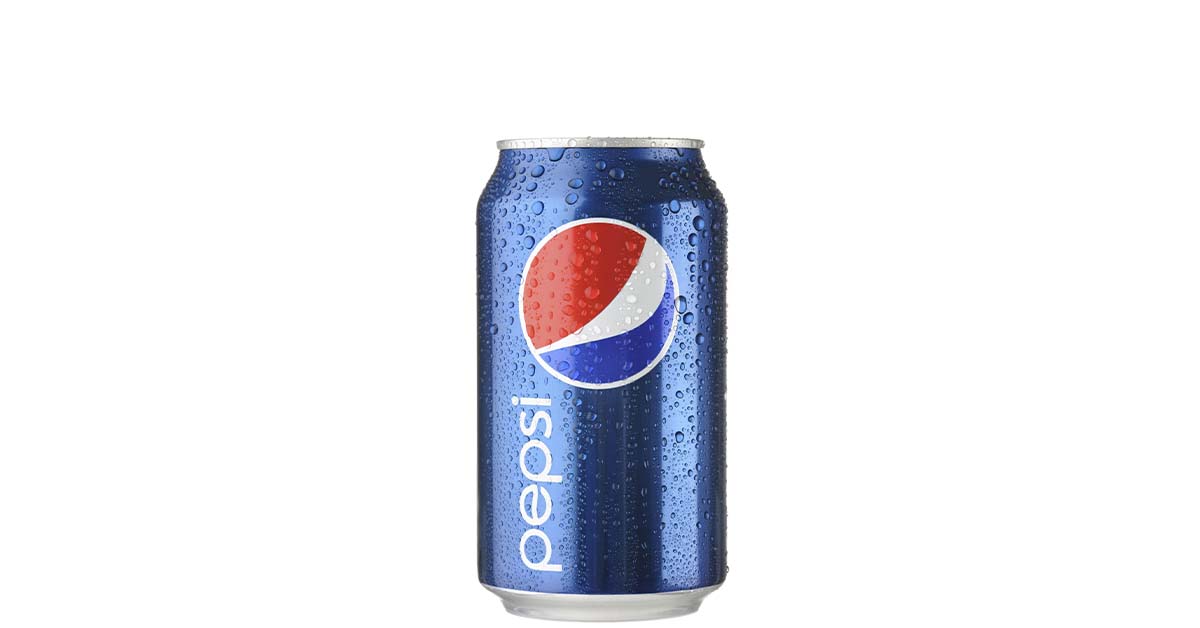When it comes to choosing the right beverage, many of us are concerned about the amount of sugar we consume. One popular option for those looking to enjoy a refreshing drink without the guilt is Diet Pepsi. But just how much sugar does Diet Pepsi contain? In this article, we will delve into the sugar secrets of Diet Pepsi and explore why it is important to understand the amount of sugar in this popular beverage.
Table of Contents
ToggleWhy is it important to understand the amount of sugar in Diet Pepsi?

Understanding the amount of sugar in Diet Pepsi is crucial for several reasons. First and foremost, excessive sugar consumption has been linked to a myriad of health problems, including obesity, diabetes, and heart disease. By being aware of the sugar content in Diet Pepsi, you can make more informed choices about your overall sugar intake and take steps towards a healthier lifestyle.
Furthermore, for individuals with specific dietary needs, such as those with diabetes or those following a low-sugar diet, knowing the sugar content of Diet Pepsi is essential for managing their sugar intake effectively.
By understanding the amount of sugar in Diet Pepsi, individuals can make an informed decision about whether this beverage aligns with their dietary requirements.
The recommended daily sugar intake
Before we delve into the sugar content of Diet Pepsi, it is essential to understand the recommended daily sugar intake. According to the World Health Organization (WHO), the recommended limit for daily sugar intake is no more than 25 grams, or 6 teaspoons, for adults. For optimal health, it is advised to consume even less sugar, ideally around 5% of your total daily calorie intake.
How much sugar is in a can of Diet Pepsi?
Now let’s uncover the sugar secrets of Diet Pepsi. One of the main reasons why Diet Pepsi is a popular choice is because it contains zero grams of sugar. Yes, you read that right! A can of Diet Pepsi is completely sugar-free. Instead of using sugar as a sweetener, Diet Pepsi is sweetened with artificial sweeteners, such as aspartame or sucralose. This makes it a suitable option for those looking to reduce their sugar intake while still enjoying a fizzy, refreshing beverage.
Comparing the sugar content of Diet Pepsi with other beverages

To put the sugar content of Diet Pepsi into perspective, let’s compare it with other popular beverages. A regular can of soda typically contains around 39 grams of sugar, which is significantly higher than the zero grams found in Diet Pepsi. Even seemingly healthier options like fruit juices can contain high amounts of sugar. For example, a 12-ounce serving of orange juice can contain up to 33 grams of sugar.
It’s important to note that while Diet Pepsi doesn’t contain sugar, it does contain artificial sweeteners. While these sweeteners are generally recognized as safe by regulatory authorities, some individuals may prefer to avoid them due to personal preferences or health concerns.
If you are concerned about the use of artificial sweeteners, it’s worth exploring other beverage options that align with your dietary needs and preferences.
The health effects of consuming too much sugar
Consuming excessive amounts of sugar can have detrimental effects on our health. It is a well-known fact that high sugar intake is strongly associated with weight gain and obesity. When we consume sugary beverages like regular soda, our bodies quickly absorb the sugar, causing a spike in blood sugar levels. This can lead to an energy crash and an increased risk of developing chronic conditions such as diabetes and heart disease.
Additionally, high sugar intake has been linked to an increased risk of tooth decay. The bacteria in our mouths feed on sugar, producing acids that erode tooth enamel and lead to cavities.
By choosing sugar-free options like Diet Pepsi, you can reduce the risk of tooth decay and maintain good oral health.
Is Diet Pepsi a healthier alternative to regular soda?
Given that Diet Pepsi contains zero grams of sugar, it can be considered a healthier alternative to regular soda, especially for individuals looking to reduce their sugar intake. However, it’s important to note that while Diet Pepsi may be a better choice in terms of sugar content, it is still a carbonated beverage that contains artificial sweeteners.
If you are aiming for optimal health, it is recommended to prioritize water, unsweetened tea, or naturally flavored beverages like infused water. These options provide hydration without any added sugars or artificial sweeteners. However, if you enjoy the occasional carbonated beverage and want to reduce your sugar intake, Diet Pepsi can be a suitable choice.
Tips for reducing sugar intake in your diet
If you’re looking to reduce your sugar intake in your overall diet, not just in beverages like Diet Pepsi, here are some tips to get you started:
- Read food labels: Be mindful of hidden sugars in packaged foods, such as sauces, condiments, and even seemingly healthy snacks. Familiarize yourself with the various names for sugar, such as sucrose, fructose, and high-fructose corn syrup.
- Choose whole foods: Opt for whole, unprocessed foods that are naturally low in sugar. Fruits, vegetables, lean proteins, and whole grains should form the basis of your diet.
- Cook at home: Preparing your meals at home allows you to have full control over the ingredients and sugar content. Experiment with herbs and spices to enhance the flavor of your dishes without relying on added sugars.
- Be mindful of portion sizes: Even foods that are considered healthy can still contain sugar. Pay attention to portion sizes to ensure you’re not unknowingly consuming excessive amounts of sugar.
- Gradually reduce sugar intake: Instead of cutting out sugar entirely, try reducing your intake gradually. This can make the transition easier and more sustainable in the long run.
Other factors to consider when evaluating the healthiness of Diet Pepsi
While the sugar content of Diet Pepsi is an important factor to consider, there are other aspects to evaluate when determining the overall healthiness of this beverage. One of these factors is caffeine. Diet Pepsi, like regular Pepsi, contains caffeine. While moderate caffeine consumption is generally safe for most individuals, excessive intake can lead to negative effects such as insomnia, nervousness, or increased heart rate.
Another consideration is hydration. While Diet Pepsi can help quench your thirst, it is important to remember that water is the best choice for optimal hydration. If you choose to consume Diet Pepsi, it should be in addition to, rather than a replacement for, your daily water intake.
Frequently Asked Questions
Is Diet Pepsi completely sugar-free?
Diet Pepsi is sugar-free, using artificial sweeteners to provide the sweet taste without adding any sugar or calories.
What sweeteners are used in Diet Pepsi?
Diet Pepsi primarily uses aspartame as its sweetener, although some variations may use a blend of sweeteners like acesulfame potassium (Ace-K) and sucralose.
How does the taste of Diet Pepsi compare to regular Pepsi with sugar?
The taste of Diet Pepsi is similar to regular Pepsi, but it may have a slightly different flavor profile due to the use of artificial sweeteners instead of sugar. Some people notice a difference, while others do not.
Are there any health concerns associated with artificial sweeteners in Diet Pepsi?
While artificial sweeteners in Diet Pepsi are considered safe for most people, there have been debates and studies regarding potential health concerns. It’s important to consume them in moderation and consult with a healthcare professional if you have specific concerns.
How many calories are in a can of Diet Pepsi?
A regular 12-ounce (355 ml) can of Diet Pepsi typically contains zero calories. It’s marketed as a low-calorie or zero-calorie alternative to regular sugary sodas.
Can people with diabetes consume Diet Pepsi safely?
Diet Pepsi is often considered a suitable option for individuals with diabetes because it doesn’t contain sugar and won’t significantly affect blood glucose levels. However, it’s important to consult with a healthcare provider to ensure it fits your specific dietary needs.
What’s the difference between Diet Pepsi and Pepsi Max?
Pepsi Max is another diet soda from PepsiCo that uses a different blend of artificial sweeteners, often including aspartame and Ace-K. It may have a slightly different taste and caffeine content compared to Diet Pepsi, but both are sugar-free options.
Conclusion
In conclusion, understanding the amount of sugar in Diet Pepsi can help you make more informed choices about your overall sugar consumption. With zero grams of sugar and the use of artificial sweeteners, Diet Pepsi can be a suitable alternative for those looking to reduce their sugar intake while still enjoying a carbonated beverage.
However, it’s important to consider other factors such as artificial sweeteners, caffeine content, and overall hydration needs when evaluating the healthiness of Diet Pepsi.
Remember, moderation is key when it comes to sugar consumption. By being mindful of your sugar intake and making conscious choices, you can maintain a balanced diet and support your overall health and well-being. So next time you reach for a refreshing drink, consider the sugar secrets of Diet Pepsi and make a choice that aligns with your personal health goals.


